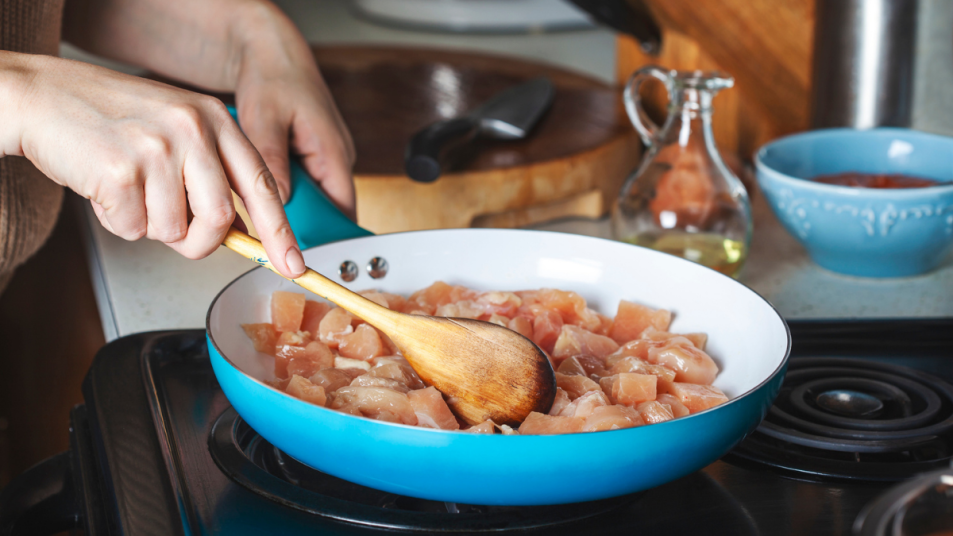This Is How Much Protein You Need in Your Diet to Fight Aging-Related Muscle Loss

You’ve probably heard that not getting enough protein means you could potentially suffer from muscle loss as you age. But does that mean you need to start knocking back protein shakes every meal to keep your intake high? According to new research, not necessarily!
Protein is a critical macronutrient for the body at any stage of life, but especially as we get older. When we age, it becomes harder for the body to build and maintain our muscle mass, which is crucial for our ability to physically function throughout the day. The recommended minimum daily protein intake for an adult woman is around 0.8 grams of protein per kilogram of body weight, which equals out to roughly 46 to 60 grams per day depending on the person. Since this is just what’s needed to keep your body running, health experts encourage women to eat more. However, eating too much protein can also cause health issues. So what amount makes sense for your health?
Many studies surrounding high-protein diets have focused on muscle mass of younger people, so scientists from the University of Illinois at Urbana-Champaign wanted to instead look at the connection between protein consumption and muscle mass in middle-aged people. Their 10-week study split 50 participants between the ages of 40 and 64 into two groups. One group ate what was considered a “moderate-protein” diet (which equaled out to roughly an extra 30 grams of protein daily), while the other consumed a “high-protein” diet (which had about 60 extra grams of protein daily). All participants also took part in three sessions of resistance training per week.
After the two-and-a-half-month experiment, data published in the American Journal of Physiology-Endocrinology and Metabolism showed that while the high-protein group saw slightly higher muscle mass than the moderate-protein group, there was no significant difference between the two. “We found that high protein intake does not further increase gains in strength or affect body composition,” explained kinesiology and community health professor and paper co-lead author Nicholas Burd, PhD. “It didn’t increase lean mass more than eating a moderate amount of protein. We didn’t see more fat loss, and body composition was the same between the groups. They got the gain in weight, but that weight gain was namely from lean-body-mass gain.”
In terms of what a moderate-protein diet looks like for many women to prevent muscle loss, it may be around 80 to 90 grams of protein per day, in addition to potentially adding a few resistance training sessions per week. (Even just 20 to 30 minutes of bodyweight exercises like push-ups and squats can help!) While you should always talk to your doctor before beginning a new diet or exercise regiment, it’s great to know that a few tweaks can keep your muscles strong as you age.












